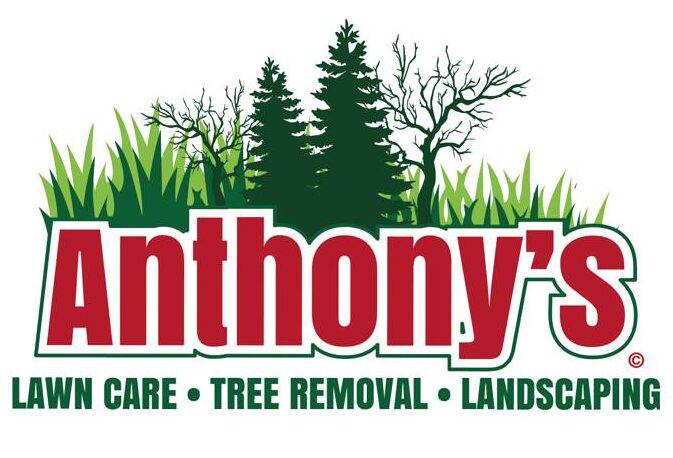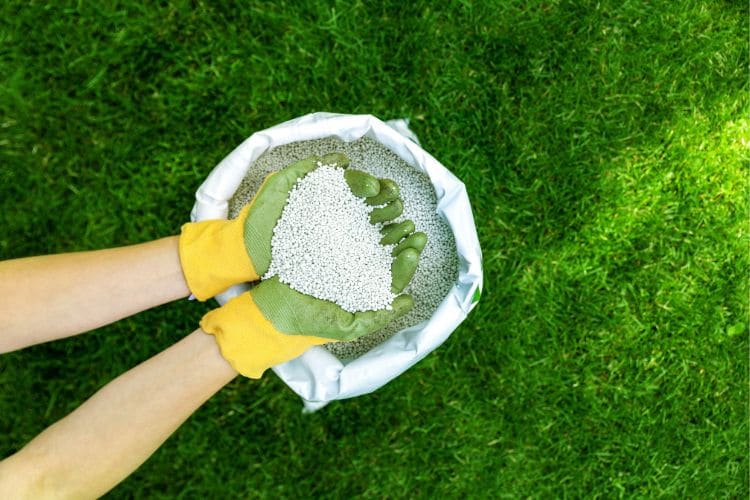Lawn care has evolved over the years and many different kinds of lawn treatments are available to make your landscaping beautiful and healthy. Most people want to ensure that they are also using products that will not negatively affect the growth of their plants, the children and pets that could play in the lawn, the natural wildlife that exists in the surrounding ecosystem, and the underground water systems that could run off to other portions of the area. Organic lawn treatments are effective for both the health of the lawn and surrounding area, and the success of a gorgeous property. But there are occasions where organic treatments are not effective and chemical lawn treatments are necessary to remove potentially harmful or invasive fungi, insects, pests, and diseases.
In weighing one potential harm with another, using responsible and experienced lawn care professionals, like those at Anthony’s Lawn Care and Landscaping, to moderate chemical treatment usage and frequency is essential to both removing dangerous natural elements, and protecting the environment and those who may come in contact with the lawn and the surrounding area. It is extremely important that you do not try to apply chemical lawn treatments on your own, being that the amount applied and consistent application in the wrong way could enormously impact the natural wildlife, immediate neighborhood, and your lawn itself. That being said, here is a brief rundown of the different kinds of chemical lawn treatments, what they are used for, and how they are on occasion necessary when being handled by professionals. Again, do not try this at home on your own.
Fungicides:
What are they?
Fungicides are chemical treatments that are used either to prevent or cure fungi in your various plants and grasses. Different kinds of fungi require different kinds of fungicides to remove, and some damage that can be attributed to fungi are instead the result of pests or insects. It is important that a licensed lawn professional identify what kind of fungi you are dealing with before any chemical fungicide is applied.
Why are they needed?
Fungi grows from excess nitrogen from common problems like collected leaves or naturally occurring oversaturation. Fungi can occur at any point in the year, even in colder climates, and can be recurring if not removed properly. They can have a devastating effect on a variety of plant life and should be addressed seriously.
When are fungicides dangerous?
Fungicides are generally known to be safe, unless breathed in or sprayed directly in the eyes. Even then, they are an irritant and do not cause lasting damage.
Is there an alternative?
Unfortunately, the majority of organic fungicides are not effective in the long term and can lead to regrowth of the fungi in the next season. However, regular lawn care maintenance can reduce the likelihood of fungi to grow and is highly recommended.
Herbicides:
What are they?
Like fungicides, Herbicides can be used to either prevent or cure. But herbicides can also be either targeted, for specific weeds or grasses, or non-selective, which kills all vegetation.
Why are they needed?
Weeds can be incredibly invasive, and extremely difficult to remove. Sometimes, herbicides are the only way to treat them.
When are they dangerous?
A lot has been said about herbicides in the last few years, but many studies are not differentiating between the non-selective and targeted varieties, and most of them are not considering the smaller doses that are standard with responsible lawn care professionals. Non-selective herbicides in large quantities can have catastrophic effects on an ecosystem and can dangerously impact groundwater. However, targeted herbicides are significantly less destructive. And either kind, when applied in the small doses necessary to kill the weeds, have a negligible effect on the environment.
Is there an alternative?
Yes, but not a very effective one. Weeds are extremely stubborn and organic treatments often open up the possibility of not killing them off completely.
Pesticides and Insecticides:
What are they?
Pesticides and insecticides are intended to target harmful creatures and insects, respectively, to remove their impact on a garden or lawn.
Why are they needed?
Some species of insects or critters can have devastating effects on the health and flourishing of a landscape.
When are they dangerous?
At the risk of sounding like an alarmist, almost always. Unlike herbicides, which can be safe to an environment in small amounts, pesticides and insecticides can poison not just the creatures that you want to remove, but also ones that are helpful to your landscape and even children and pets who might come in contact with them.
Are there alternatives?
Yes. Organic alternatives to pesticides and insecticides may not have the far sweeping and immediate impact that is desired when there are pests destroying your plants, but they are safe. And when used by a professional often enough, they can eventually balance out the ecosystem that the pests are throwing off.
A note about fertilizers: There are many excellent and targeted fertilizers on the market now that do not require dangerous chemicals and, aside from extreme situations, it is not necessary to purchase other kinds.
Being that regular lawn care can prevent many problems that eventually require chemical lawn treatments, and that the treatments themselves must be assessed and doled out by a professional, it is essential that when approaching the use of these elements, you first contact licensed professionals, like Anthony’s Lawn Care and Landscaping. Give them a call at 812.345.5694 for a free quote on your project today.


Recent Comments